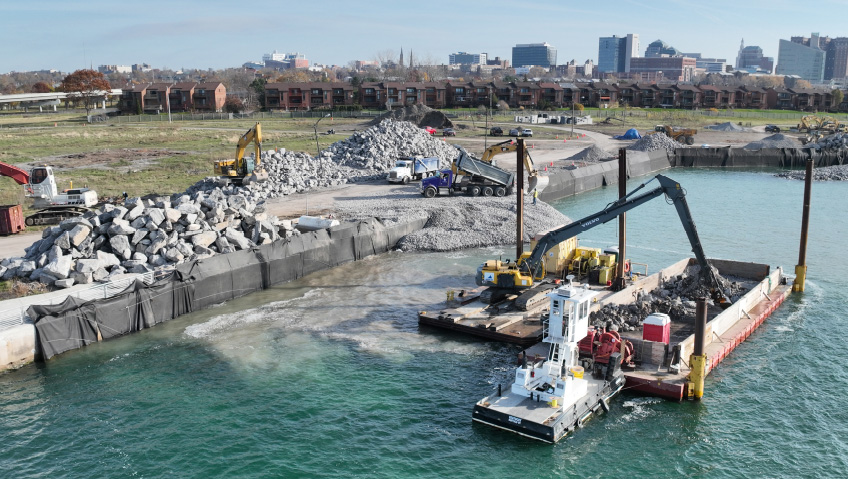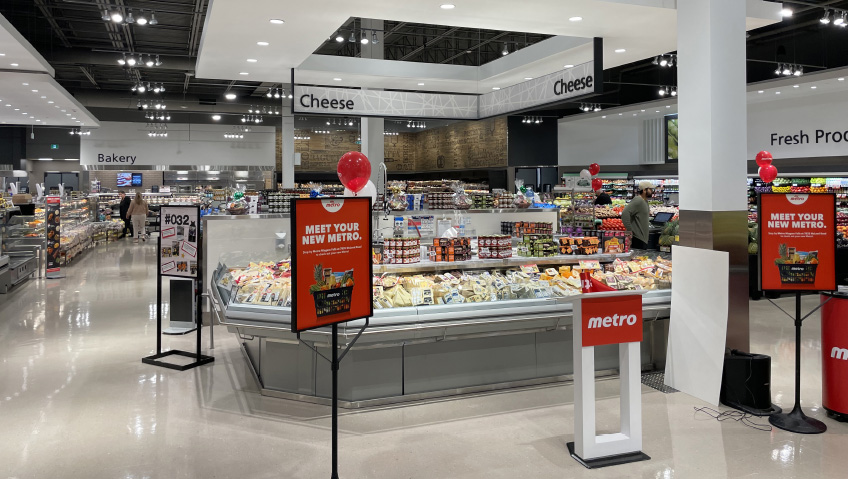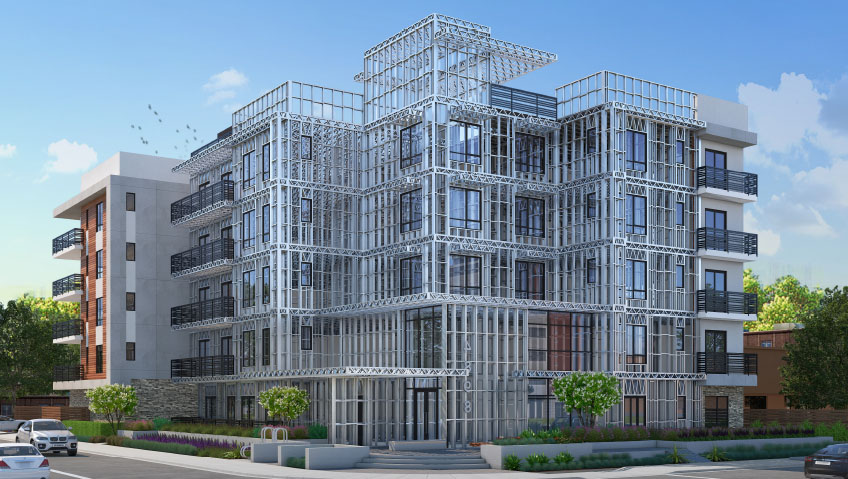Vector Construction, Ltd. has built a highly successful business based on repairing and protecting concrete. With multiple branches across North America, the company specializes in concrete repair and protection to extend the life of concrete and masonry structures and buildings. At the same time, it embraces sustainable principles and practices.
Plenty of contractors offer similar services but Vector stands out through its ability to forge strong client relationships and “get the job done,” without any call-backs on completed projects, states Manager of Canadian Construction Business Development Eliseo Conciatori.
Another key to the company’s success is the fact the firm is “incredibly safe. We’re highly capitalized, and we’re vertically integrated,” he continues.
Vector provides comprehensive services, beginning with identifying concrete-related problems at the very start of a project. Front-end services in this category include investigation, evaluation, corrosion testing, and both destructive and non-destructive testing.
If a problem is detected, or a client wants to prevent a problem from occurring, the company is ready with solutions. The company can install protective coatings and linings, waterproofing systems, and geopolymer linings. Such measures can shield concrete surfaces from the effects of corrosive chemicals, abrasion, de-icing salts, and marine environments.
Vector also offers structural strengthening systems—repairing or enhancing existing concrete structures. The strengthening process might involve the use of composite materials or rock anchors. In addition, Vector excels at corrosion mitigation systems. Corrosion mitigation begins with investigation and testing, followed by an appropriate remedy. Solutions include galvanic anodes, impressed current cathodic protection systems, and electro-chemical chloride extraction systems.
The company also provides services for construction projects involving post-tensioned cable repair and replacement. This category also includes PT cable drying, re-greasing, impregnation, and evaluation services. The team self-performs about ninety percent of these tasks, “but there are certain things we don’t do, like plumbing and electrical,” Conciatori says.
While Vector serves a wide range of markets, three sectors stand out. Transportation, as represented by bridge rehabilitation, tunnels, and culverts, is the company’s biggest revenue generator. After that come industrial projects such as manufacturing plants, pulp and paper mills, and factories, then parking garages and buildings. The firm has also done work on silos, chemical plants, and dams.
On big projects, Vector typically takes on a subcontractor role within a larger team. For smaller assignments, such as a restoration project on a parking garage or building, the firm works as a general or prime contractor, Conciatori explains.
From its Winnipeg, Manitoba headquarters, Vector runs branches in Delta, British Columbia; Edmonton, Alberta; Saskatoon, Saskatchewan; and Thunder Bay and Mississauga in Ontario. There are also offices in Fargo, North Dakota; Cedar Rapids, Iowa; and Decatur, Illinois. There are no plans to open new offices at present, although the company certainly is not opposed to the idea.
The team pride themselves on safety as well as quality, which makes sense given that their work enhances public safety. A concrete bridge that is not routinely inspected, evaluated, repaired, or restored, for example, might crumble or break, endangering motorists and pedestrians. Vector is thus pre-qualified with prominent safety organizations such as ISNetworld and Avetta and holds industry certifications from the Mining Safety and Health Administration and the Occupational Safety and Health Association (OSHA). It has also earned a certificate of recognition from the Infrastructure Health and Safety Association (IHSA) of Ontario. In addition, the company employs a Vice President of Risk Management, and every office has a dedicated Safety Manager.
The company belongs to several trade associations as well. These include the American Concrete Institute, the International Concrete Repair Institute, the National Association of Corrosion Engineers and the Structural Innovation and Monitoring Technologies Resource Centre. Trade association membership ensures that the company remains abreast of industry trends, new technologies, and safety concerns.
On top of being safety-conscious, Vector strongly endorses sustainability. “Restoration is a sustainable practice. Repairing instead of tearing down and rebuilding is a sustainable practice,” explains Conciatori.
Vector traces its roots to a Western Canadian company called G.M.W. Ltd., founded in 1965 with a focus on road building.
“In the early 1980s, their main client in road building was Manitoba Hydro. They had to make roads for Manitoba Hydro’s infrastructure. Then a huge concrete repair project came up at the Seven Sisters Dam in Manitoba. We had such a good relationship with Manitoba Hydro, they said, ‘Why don’t you guys give this job a shot?’ We turned it down, said it wasn’t in our wheelhouse. Then they said, ‘Well, the “Engineer of record” here likes you, and he can help you through it.’ It was a big job for us. We had never done anything like that. It ended up being a successful project, and the rest was history,” he remembers.
The experience at the Seven Sisters Generating Station was such a success that the company took on new concrete rehabilitation contracts. It earned a reputation for providing excellent concrete protection and restoration services using cutting-edge technology and techniques.
An office in Saskatoon was opened, followed by a branch in Thunder Bay, then in Alberta and Southern Ontario. More branches appeared and Vector continued to expand its services, incorporating corrosion mitigation work, for example.
Along the way, the company name was changed to its current designation, and some new companies were started. These are Vector Corrosion Technologies (VCT), founded in 1999 and based in Winnipeg; and more recently, Vector Corrosion Services (VCS) and NDT Corporation.
“VCT manufactures galvanic anodes and other corrosion mitigation technologies, while VCS “does corrosion evaluation, testing, and design and NDT provides non-destructive testing and evaluation services,” Conciatori says.
“These spin-off firms represent three facets of the company. There’s construction, there’s corrosion, and then there’s the evaluation / testing end of it,” he explains.
The total number of employees across all companies fluctuates depending on seasonal workload. “When we’re rockin’ in the summer, we could have up to 600. But full-time across the board, probably around 250.”
Vector also maintains an affiliation in Indonesia and a sales office in Birmingham, UK. The Birmingham branch sells anodes throughout Europe and does corrosion-related research and development work.
As for the traits Vector looks for in potential new hires: “Attitude is probably number one and an ability to work in a team environment, and then, experience is probably the third, as well as willingness to grow and advance their career,” he continues.
Clearly, Vector is doing something right by its employees, as the firm has repeatedly appeared on the Best Managed Companies in Canada list. Published annually in Canadian Business magazine, the list has featured Vector multiple years in a row. This consistent showing has placed it into the exalted ‘Platinum Member’ status.
The company’s upwards trajectory took a very brief tumble when COVID became a global scourge. Conciatori recalls this period vividly. In March 2020, Vector was hosting a series of in-person seminars. “We do a lot of marketing and business development. That’s another thing that makes us unique,” he notes. The seminars had to be cancelled “one by one because COVID was breaking out.” Each division, for example, used to host in-person lunch-and-learn sessions in which head office would supply the speakers, program, and marketing info.
Some industrial facilities and manufacturing plants temporarily banned contractors from coming in to minimize the risk of spreading COVID. Vector had to cut back on work temporarily while taking measures to protect field crew members who were still completing projects. Masks, social distancing, and other measures became the norm.
The company quickly pivoted and created a series of online seminars. While these proved popular, Vector is re-launching its in-person presentations. Conciatori is also pleased that the workload has rebounded greatly. “The floodgates opened up, and [we’ve been] nonstop, going crazy working.”
Not counting COVID, attracting labour is the company’s biggest challenge. It recently hired a recruitment manager in Winnipeg to help develop innovative ways to recruit and retain field staff.
Plenty of other firms across North America have also found it difficult to lure new personnel. Existing workers within the trades, manufacturing, and industrial sectors, are approaching retirement age and insufficient numbers of young people are stepping up to take their places.
For all that, Vector Construction expects to “hit a milestone in revenue in ’23, based on our current backlog of work,” Conciatori states.
The company anticipates “growth in key market sectors,” over the next few years. Vector will also focus on gaining more work within the mining and power / energy sectors.






